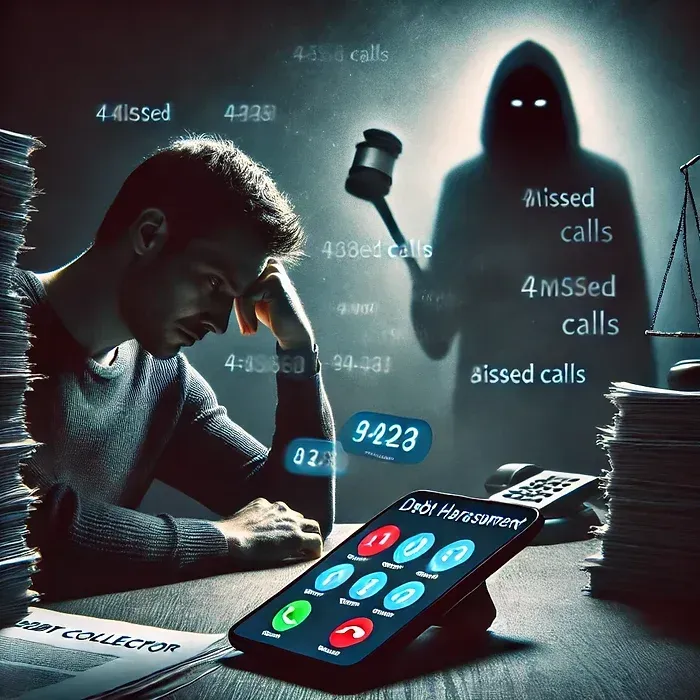
What Happens When Creditors Don’t Honor Your Bankruptcy Discharge? The FDCPA May Be Your Next Line of Defense
What Happens When Creditors Don’t Honor Your Bankruptcy Discharge? The FDCPA May Be Your Next Line of Defense
Bankruptcy is meant to be a fresh start, a clean slate that wipes away crushing debt and puts a stop to creditor harassment. When a discharge is ordered by the court, it is a binding declaration that certain debts are erased for good. Unfortunately, some debt creditors don’t honor bankruptcy discharges and continue to harass consumers or report discharged debts as due. The Fair Debt Collection Practices Act (FDPA) provides us remedies against such unsavory tactics. Thankfully for consumers, the law is on your side.
What Is a Bankruptcy Discharge and What Does It Prohibit?
When you file for bankruptcy and complete the required steps, a discharge order wiping out certain debts may be decreed by the court. Discharged debts usually include unsecured debts such as credit card balances, medical bills, and personal loans. Some debts and obligations, like student loans, child support, alimony, and certain tax obligations, often survive bankruptcy.
Once a discharge is granted, creditors and debtors are legally prohibited from contacting you to collect on discharged debts. This means no phone calls, aggressive letters, garnishments, or threats – full stop. Creditor Reporting Agencies and creditors are required to update your credit report to reflect a balance of zero for discharged debts. If they fail to do this or continue their collection attempts, they may be violating both the Bankruptcy Code and the FDCPA, which could entitle you to legal remedies.
How Creditors Violate the Bankruptcy Discharge: Common Unlawful Tactics:
Here are common ways creditors violate a bankruptcy discharge:
Sending collection letters after discharge: These letters may look routine, but are unlawful if they demand payment on a discharged debt
Phone calls or threats: Harassing calls or threats of legal action are illegal under the Bankruptcy Code and FDCPA
Misreporting to credit agencies: Creditors may report discharged debts as delinquent or in collections, or show a balance other than zero, damaging your credit score and violating your consumer rights.
Selling your discharged debt: Passing on a discharged debt to a third-party collection agency can lead to more illegal collection attempts, and does not absolve the original creditor.
How the FDCPA Can Hold Creditors Accountable
The Fair Debt Collection Practices Act (FDCPA) is a federal law designed to protect consumers from abusive, deceptive, and unfair debt collection tactics. While it applies broadly to all debt collection, it is particularly important following a bankruptcy discharge. It is important to know your rights so that creditors do not take advantage of you.
Key FDCPA Protections That Apply Post-Bankruptcy:
§1692e: This section prohibits false, deceptive, or misleading representations during debt collection. Claiming a discharged debt is still owed is a violation of this section.
§1692f: The provision bans unfair or unconscionable collection practices, such as attempting to collect discharged debts.
What You Should Do If a Creditor Violates Your Bankruptcy Discharge
If a collector continues to harass you over a discharged debt, the FDCPA gives you the tools to fight back.
Steps You Can Take:
Send a Cease-and-Desist Letter: Formally notify the collector to stop contacting you about the discharged debt.
Dispute the Debt with Credit Bureaus: If a discharged debt is reported as active, dispute with the Credit Reporting Agencies (Equifax, Experian, or TransUnion).
Report the Violation: You file a complaint with the Consumer Financial Protection Bureau (CFPB)
Take Legal Action: You may be eligible to sue and seek damages, especially if you are being harassed or have had your credit damaged.
Keys To Building a Strong Case:
Keep Records: Save a paper trail of collection letters, as well as call logs, voicemails, and emails.
Document Your Discharge: Have your Bankruptcy paperwork on hand.
Check Your Credit Reports Regularly: You can request free annual credit reports from the three main credit reporting agencies (TransUnion, Equifax, and Experian) at AnnualCreditReport.com. Look for any discharged debts showing as active.
Consult Consumer Rights Attorneys: Like our team at Tariq Law, our skilled team can help you navigate your dispute, file a lawsuit if necessary, and maximize your chances of a favorable outcome.
Hold Creditors to Account – Stand Up For Your Rights!
Bankruptcy gives consumers a clean slate, and when your debts are discharged, you are entitled to legal protection from harassing creditors. Unsavory creditors rely on consumers being uninformed and timid; break the mold and stand up for your rights as a consumer. Were your rights violated post-bankruptcy?
Contact Tariq Law today. We’ll help you hold collectors accountable and keep your slate clean.
